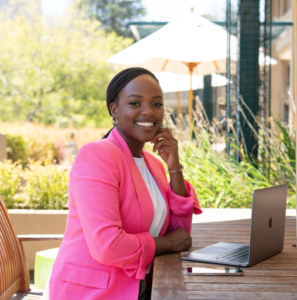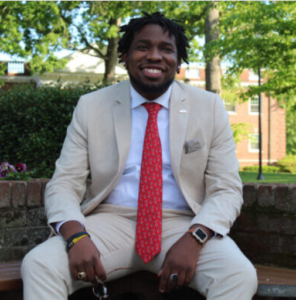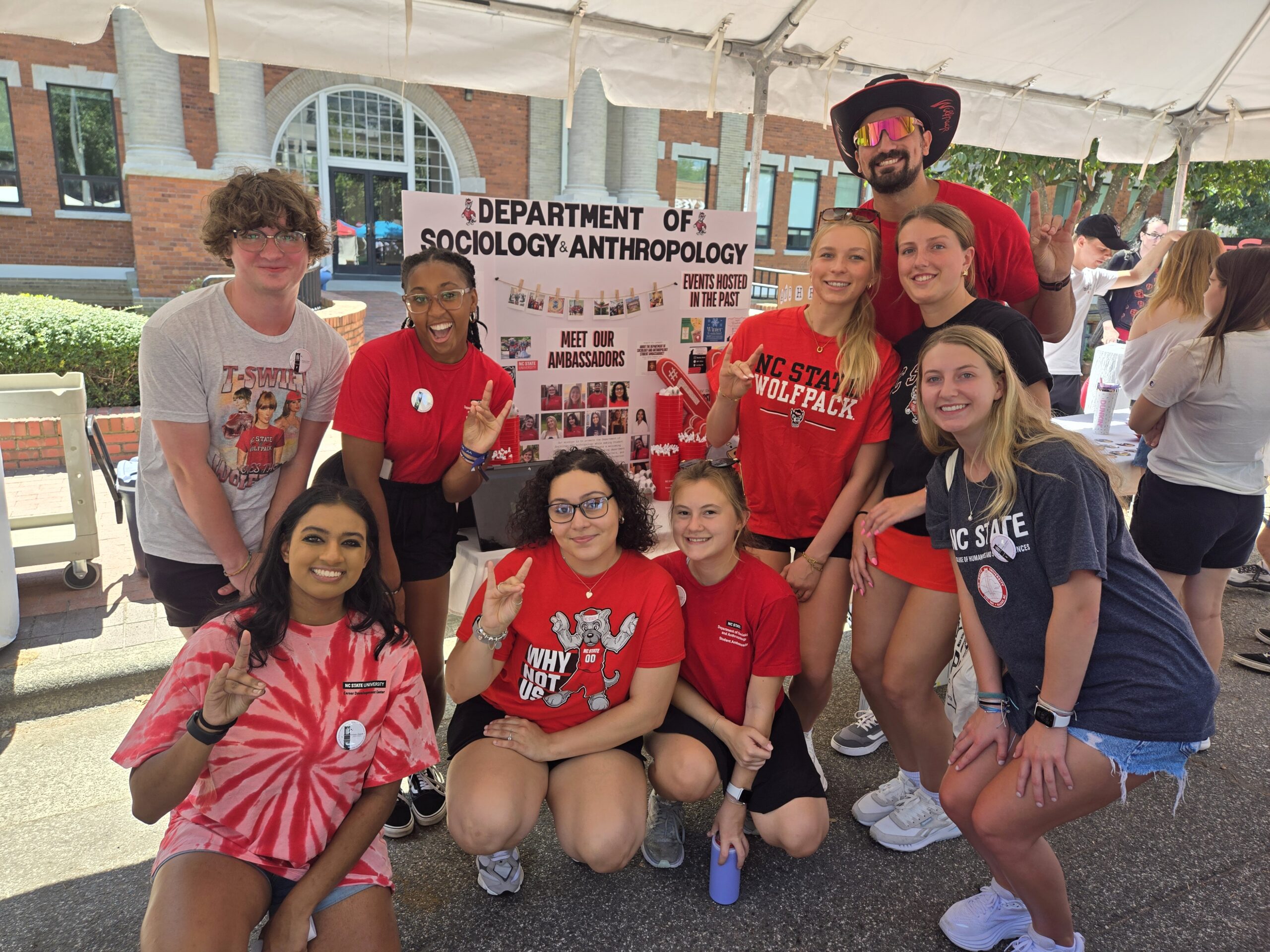Black History Month – Celebrating Black Excellence in Our Department.

February is Black History Month, a contextually American occasion, where the accomplishments and achievements of Black people are celebrated. Once February has come and gone, we should still recognize the innovation and production that Black people have given globally.
I had the opportunity to interview Davion Washington Jr. and Professor of Sociology Marbella Hill for this article and was able to ask them about their educational desires as well as how being Black has impacted different parts of their lives. Davion Washington Jr. is a sociology graduate student currently working on his master’s thesis on white racial allyship and black perspectives. He noted there were good aspects, but also harmful aspects to allyship and by introducing these challenges there is a place for change. Davion wants everyone to use Sociology with love, and to receive the love that it gives.
Dr. Marbella Hill is a professor here at NC State and her work focuses on Family and Work with an intersection of Race, Class, and Gender. Her research has presented new ideas of constraint within these relationships and how these constraints affect different groups of people, from low-income families to middle-class families. It also focuses on Black professionals and the different barriers they face in careers and how they leverage those in their constraints. Dr. Hill heavily requests that everyone look up a prominent Black historical figure that they have not heard of before. Broaden your perception of black history and learn something new!!

Pictured: Dr. Marbella Hill
Their time at NC State has provided them with different opportunities, such as how to teach rather than lecture, or how to spread their message of black excellence across a huge community.
Davion Washington Jr. went to a very small institution for his undergraduate degree before coming to a large state university. He said the best part about NC State is the people, especially given the loss this campus has experienced, and that the people will make or break your college experience. Another aspect he appreciates about NC State is said best by Davion himself:

Pictured: Graduate Student, Davion Washington
“I also really enjoyed being able to delve deeper into my field and becoming more knowledgeable about race and racism. There are so many difficult struggles going on in the world, but I am grateful to have these relationships with these people and there are so many communities for black students. NC State offers me the opportunities to fight for what is right and to serve my purpose.”
Davion is on the Black Student Board which facilitates close relationships between many other black people at NC State and gives them a feeling of belonging and community at such a large, predominantly white university. With many different challenges that life presents, Davion takes it head first as a chance to do the right thing and encourages others to do the same.
Dr. Marbella Hill had her first semester at NC State last semester as faculty and she saw NC State as a way to use the tools she earned from graduate school, where she earned a certificate of excellence in teaching. It’s using activities and different learning methods that promote learning to all students, not just lecturing and reading off a slide. Engaging with the students in her courses has shaped the way she views teaching and education, especially on how to get someone from point A to point B in the best way possible. Her background has shifted the way she views higher education stating,
“Doing interviews with people on their stories I found that work and their work pursuit have changed the way they perceive family and how they prioritize work beginning with their academic pursuits. I used to think that educational opportunities were just opportunities, but I never thought about how they could pose a constraint. I think that now, thinking about the ability to go to college, going to dreams, getting funded, it’s viewed as a golden ticket for Black Americans because it has historically been so elusive. What they find from campuses all over the country, it’s difficult to balance their academic and also nonacademic opportunities. Barriers such as needing to work, not many Black students, and facing underrepresentation.”
For those wondering if they made the right decision in their major field, Dr. Hill put it best, you will know when you know. Dr. Hill came to be a sociologist when applying to her graduate school programs. The ones that sought after the questions she was asking and her research were Sociology Programs. It wasn’t planned, it wasn’t on the books, the pieces just fell where they needed to be. Once she met her cohort she realized that she was in the right place and that they were her people.
Davion gave special attention to the father of Urban Sociology, W.E.B. Du Bois. Citing him as his biggest influence in sociology, Du Bois is the founder of the NAACP and the first African American to receive a Ph.D. from Harvard University. W.E.B. Du Bois was also one of the most important protest leaders and was the founder of the Niagara Movement, which was a group of civil rights activists who drew up a statement of principles opposed to the Atlanta Compromise. Davion looks up to Du Bois and sees him as a figurehead stating, “The father of sociology! Sociology has been a tool to represent the people and the people that look like me.”
Black History Month as a whole is representative of a small scale of Black achievements seen through history, whether it’s American architecture that is praised, space travel, or even the world’s first successful heart surgery. One of the final questions I asked both Davion and Dr. Hill was “What Does Black History Month Mean to You?” They both had great answers that confronted the challenges of having February as the dedicated month as well as this personal connection to their family and friends.
“I think it means a publicly recognized opportunity to celebrate Black achievements and Black excellence, especially historically, and to acknowledge the presence and contributions of Black Americans historically and contemporaneously in American society. It is not lost on me that there could be no Black History Month, even though we should be considering these things outside of February. We are cementing its existence and it matters.” -Dr. Marabelle Hill
It’s a subtle recognition of all that Black Americans have been able to achieve and accomplish in this country. It’s just one month, it’s the shortest month, but I think it’s symbolic because it gives people something to look up to. We just have to make sure it transcends beyond February. It’s more than a civil rights movement or MLK or Malcolm X, it’s about all Black history, Black queer history, Black disabled history.” – Davion Washington Jr.
When asked what being Black meant to them, they both had to take a moment and think. A rather open-ended question that was more personal and somewhat vulnerable in comparison to the rest of our conversations. However, they both gave empowering answers that covered this spectrum of racial identity and how these “constraints” have created something so special.
“Being black to me is what our culture has given meaning to. The fact that I am black is because that is what people who look like me were deemed to be. From othering us, we have created culture and innovations that the world can’t help but steal. Being black is being resilient and being black is looking out for the little guy, always.” – Davion Washington Jr.
“It means mattering, even when you’re told that you do not. It means feeling both hyper-visible and invisible at the same time. It means community, I definitely see myself as a larger body and thinking about the things I do and say and my general existence as being a part of a larger group. I don’t do the things I do for myself, I do it for my community. Things students say to me “It’s nice to have black faculty in this department” It is meaningful and I tend to think about my work and I prioritize the projects that positively impact my community. It means showing up for my community as much as possible and as best as possible.” – Dr. Marbella Hill
A special thank you to both Dr. Marbella Hill and Davion Washington Jr. for meeting with me and being so open with their lives, experiences, and stories. This article would not have been possible without their contributions!!
By Olivia Fiser, Anthropology and History Double Major and Leadership Team Newsletter Coordinator of Department of Sociology and Anthropology Student Ambassador Team

- Categories:


